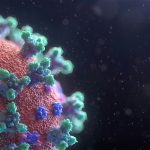New test detects residual cancer DNA in the blood without relying on tumor data
After patients with cancer undergo surgery to remove a tumor and sometimes additional chemotherapy, tools are used to identify patients at highest risk of recurrence. Non-invasive tools to detect microscopic disease are of especially high value. In a new study published in Clinical Cancer Research, a team led by investigators at Massachusetts General Hospital (MGH) has evaluated the first “tumor-uninformed” test that detects cancer DNA circulating in the blood of patients following treatment.











